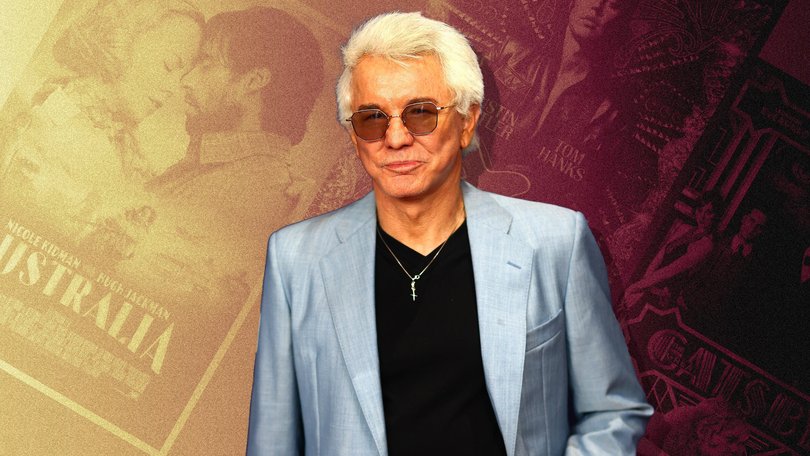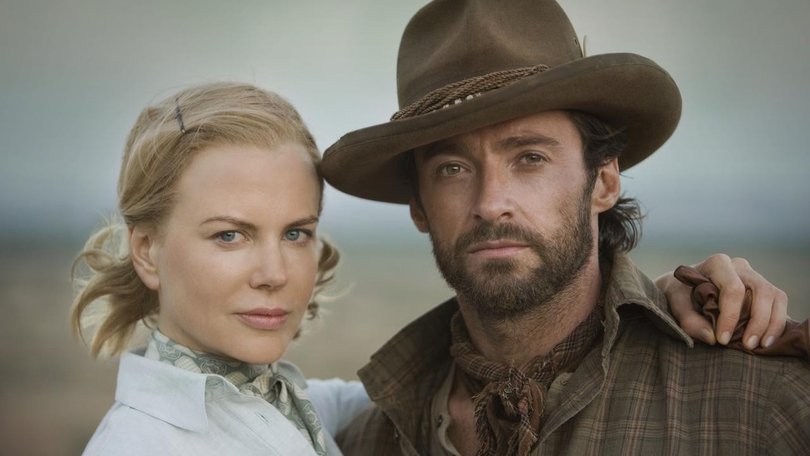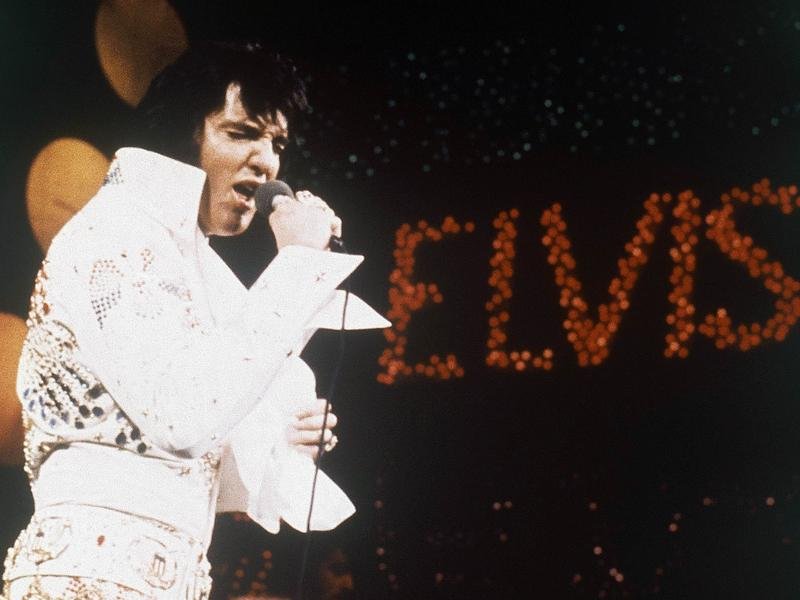Why Elvis director Baz Luhrmann hasn’t made an Australian movie since 2008
With a hundred untold Australian tales on his mind, filmmaker Baz Luhrmann has explained why he has to be ruthless to do justice to the stories that matter.

With a hundred untold Australian tales on his mind, filmmaker Baz Luhrmann has explained why he has to be ruthless to do justice to the stories that matter.
Luhrmann says the world needs more stories from his home country, but because his projects take a long time he needs to be picky.
The iconic Australian filmmaker was on the Gold Coast on Wednesday to launch the 2026 Australian Academy of Cinema and Television Arts (AACTA) Festival as an official ambassador, a role he now shares alongside his wife and longtime creative partner Catherine Martin, along with fellow ambassador Cate Blanchett, Vice President Nicole Kidman and President Russell Crowe.
Sign up to The Nightly's newsletters.
Get the first look at the digital newspaper, curated daily stories and breaking headlines delivered to your inbox.
By continuing you agree to our Terms and Privacy Policy.Of course Luhrmann’s 1992 directorial debut Strictly Ballroom was set and shot in Australia and adapted from his own experiences, then the homegrown focus continued with Moulin Rouge!, filmed in Sydney, and culminated in the 2008 historical drama Australia, starring Nicole Kidman and Hugh Jackman, which was filmed across multiple stunning Australian locations.

The Great Gatsby (2013) was also primarily shot in Sydney, and Elvis (2022) was entirely filmed and post-produced on the Gold Coast.
Luhrmann’s work has really helped shape what modern Australian cinema looks like on the global stage.
But Luhrmann’s last Australian feature was in 2008, so when asked what’s next on his list, the award-winning director admitted to The Nightly, “Oh, I’ve got 100 of them.”
Luhrmann says he’ll only be able to bring a rare few to life, which leaves many great Australian stories untold while he perfects each pick.
“I mean, I have so many stories, I’ll never get to tell all of them. But there’s lots of Australian pieces I go, wow, someone needs to tell that story. But because . . . I’m involved in every aspect, you know, from conception and writing and realisation of it and every aspect, music, it would take a long time,” he told The Nightly.
“So I know I’ll only be able to tell so many stories, so I have to choose wisely. But I hope that I can leave behind at least some guides and some indications of where to look for these great stories.”
The film Australia he re-imagined as Faraway Downs, a six-episode miniseries released in 2023 using decades-old archival footage to retell themes of race, history and belonging.
The famously meticulous director is currently working on a medieval film about Joan of Arc, the French Saint and icon, revealing on Wednesday he is working on shooting the Hollywood blockbuster in Queensland and also confirming The Queen’s Gambit breakout Isla Johnston will star.
“We are working on bringing it here,” he said about Jehanne d’Arc, a massive historical epic that shows his appetite for grand stories beyond his homeland.
But when it comes to Australia, his pickiness means years between features, frustrating those who’d love to see more frequent homegrown stories.
EPiC: Elvis Presley in Concert Australian Premiere
The five-day AACTA Festival returns to HOTA on the Gold Coast from February 4–8 next year, with the event secured as its home through 2028, a move Baz Luhrmann warmly welcomes as he has made the Gold Coast his creative base since the COVID pandemic.
Luhrmann’s EPiC: Elvis Presley in Concert will have its Australian premiere at the festival, with the Gold Coast growing its reputation as a world-class filmmaking hub. The director dubbed the region “Goldiewood” after primarily filming Elvis in South-East Queensland and setting up post-production studios there.

Luhrmann said the response so far to his new Elvis documentary after playing at the Toronto film festival this year got people “crazy”, “people got up and danced,” he said.
“It’s cross generational. I am surprised how quickly it’s reached out. There’s the base of fans for it, but there’s a real new audience for it too.”
That includes “people who don’t even care about him,” he said. “They have really responded.”
Luhrmann said the unseen concert footage, found eight years ago, captures a version of Elvis that he expects will still shock audiences. “It’s shocking in that it’s not offensive,” he said. “But what everyone universally says is, when you see the man on stage, all of the tropes go away because he’s ridiculously funny and self‑effacing and humble. But he’s very funny, and I think that is a surprising bit, funny and fun and comfortable.
“I think you’re really aware that for such a shy person, very complicated as all performers and artists are, he was totally at ease and so at peace and in his comfort zone on stage,” but Luhrmann said he definitely wasn’t comfortable off stage.
Luhrmann said the new project has also reignited reflection about Elvis Presley’s short life, with audiences being reminded of the tragic pieces of Elvis’ story “(In EPiC) I didn’t lean heavy into that (sadness),” he said. “But it’s there. Everyone says they can feel it.”
“Someone I know who is head of a studio, nothing to do with the film, not particularly interested in Elvis, said . . . there was just a feeling of, ‘gee, I wish I could have’ . . . We can easily look outside in and go wish we could help out, you know, because it is a waste. There was a sad waste at the end. He only died so young — 42.”
Trump’s production tariff threat
Luhrmann says US President Donald Trump’s threat to impose a 100 per cent tariff on movies made outside the United States won’t affect his decision making, and shouldn’t matter to filmmakers anywhere.
Mr Trump has repeatedly claimed foreign nations have “stolen” America’s film industry, promising a 100 per cent tariff on non-US productions, but industry leaders, legal analysts and trade experts remain sceptical about how such levies could even be enforced. The Australian film business, a multi-billion-dollar sector, relies on the US as a vital export market.
But Luhrmann says creativity shouldn’t be limited by changing political rules. “The actuality of tariffs change so quickly . . . that it’s not really worth going into,” he said.
“Because one thing I know is that we make films, and we made them here. Hollywood makes films set all over the world, in Hollywood, we should be able to make films. I wanted to prove one thing, that we can make a film and a story and a creative idea that could be set anywhere in the world, but we can pre-shoot and post-produce it here.
“And I think that discussion is not relevant to that journey. Because what’s relevant is that no matter what any particular administration does at any particular time, we should never be tethered to anything that stops us from being creative in our own way. And that’s the culture we need to be working on here.”

